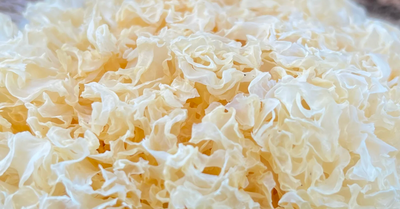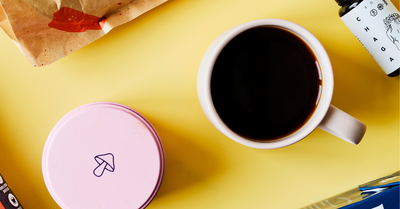
How To Reduce Your Toxic Load

How To Reduce Your Toxic Load
How To Reduce Your Toxic Load
A toxin commonly refers to a substance that causes harm to the body. We are exposed to these toxins every day; they can be found in the air we breathe, the food we eat, the products we apply to our skin and the water we drink. While individually, these natural and synthetic chemicals may only cause minimal harm, they can build up in our bodies over time to result in a negative impact on our health. The accumulation of these toxins in the body and the burden they place is referred to at the toxic load. Common symptoms of high toxic load are bloating, skin breakouts, constipation, headaches, fatigue, difficulty concentrating and irritability.
While we can optimise our diet, movement and relaxation practices, our toxic load should not be overlooked as it may be the roadblock to health for some. Minimising our toxin exposure is possible with some small tweaks to our diet and lifestyle, allowing us to reduce our exposure as best we can.
How does our body cleanse itself of toxins?
The human body is pretty well equipped to deal with exposure to nasty chemicals and it has two major filtration systems in place: the gut and the liver. We don’t need to go on a “detox diet” or a “juice cleanse”, however instead we can focus on reducing our toxin exposure and supporting these filtration systems to work optimally.
Gut filtration system
The gut is the first line of defence, where food is digested, absorbed and unwanted materials are excreted. The trillions of bacteria living in our gut act as bouncers, aiding the removal of unwanted bacteria and helping to break down toxic materials to aid excretion. When the gut bacteria are out of balance, due to factors such as antibiotics, processed foods, sugar and stress, they are less able to perform their duties and protect our health.
Bowel movements allow the body to excrete toxins, pathogens and any unwanted products that have been collected through the digestive tract. When constipation strikes and this material is left to sit in the colon, toxins can be reabsorbed into the bloodstream, causing symptoms such as headaches, bloating and fatigue.
Best things to do are to:
- eat plenty of fibre (wholegrains, vegetables, fruits),
- keep hydrated (6-8 cups of water day on average), and
- minimise processed foods and free sugar to keep bowel movements regular and our gut bacteria strong.
Liver and detoxification
The liver is our main filter, cleaning up after us and constantly regenerating new tissue cells to keep on top of the workload and damaging effects of our toxic lifestyle. Some ways we can support our liver to function optimally are:
- Eat cruciferous vegetables daily (broccoli, cauliflower, kale, rocket, etc.)
- Include B-vitamin rich wholegrains (brown rice, oats, buckwheat, etc.)
- Eat high quality protein (wild or organic poultry, game, eggs, fish and beans)
- Include antioxidant rich foods in the diet (herbs, berries, ginger, green tea, etc.)
Eliminating toxins in daily life
We know how to support the removal of these toxins from our body, but how can we avoid them?
Environmental toxins are found in our:
- Water supply! UK tap water is chemically treated to remove bacteria and meet the standards for drinking water. The toxins in tap water come from the addition of chlorine, lead leaching from old pipes, microplastics and high levels of PFAS (forever chemicals). Water filtration systems are a great way around this problem, you can either get one fitted to your water supply or just use a filtration jug in the fridge.
- Air! Something we all struggle with, particularly if you live in a city, is the quality of the air we breathe. While we can’t change the air outside, air purifiers are available to clean up the air in your home, allowing you to create a safe-haven.
- Cosmetics! Some cosmetic products contain phthalates and parabens, among other ingredients that are best kept away from our skin. Clean skincare products are becoming more mainstream and are an easy way to reduce our exposure.
- Cleaning products! Common household cleaning products have a long list of nasty ingredients that we can’t read, and these are easy for us to absorb through the skin and inhalation. Switching to more natural and ecological brands such as Ecover and Method will reduce this exposure.
Stimulants are forms of toxins:
- Alcohol. A known burden on the liver when consumed regularly and in excess, however we fortunately have an abundance of non-alcoholic drink options which are produced naturally and still taste divine.
- Coffee and tea. High caffeine intakes can place a heavy burden on the liver and negatively impact our gut health. Decaffeinated drinks are a great alternative, however ensure you opt for a water based technique as many of the decaffeination processes use chemicals which may do more harm than good! Alternatively, green tea retains a little caffeine while having powerful antioxidant effects to support your health.
- Tobacco. One of the many downfalls of cigarette smoking is that it adds to our toxic load by introducing heavy metals into the body. There isn’t a healthy alternative to smoking however there are various platforms to support you as you quit.
Toxins found in our food include:
- Pesticides. These are used on a huge scale on our fruit and vegetables and aren’t washed off easily with water alone. Opt for organic wherever possible and soak non-organic produce in a bicarbonate of soda and water solution to remove pesticides.
- Antibiotics and growth hormones. These are injected into poultry and ruminant animals to prevent infection and encourage growth, however when we consume their meat we are ingesting these medications. Organically reared animals are not treated with these drugs and hormones, so try to choose organic meat and dairy to reduce this toxin exposure.
- Natural toxins. Some plants are equipped with a natural toxin to protect themselves from being eaten and destroyed, for example glycoalkaloids in white potatoes, and can cause side effects at high concentrations. Try not to eat too much of the same food every day and introduce some variety into your diet.
- Charred food. Burnt and charred foods contain PAHs, a substance that has a high toxic load on the body and is linked to damaging effects such as cancers. Avoid charring food when you are cooking, particularly over coals.

















